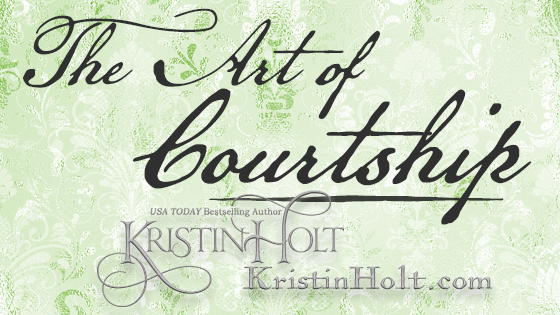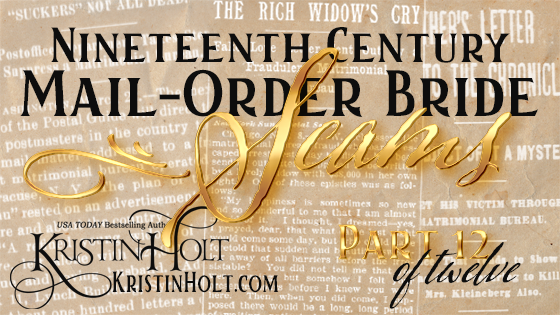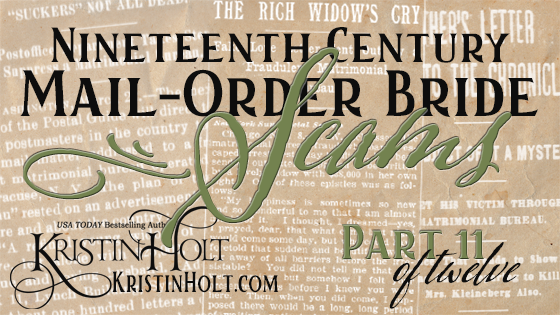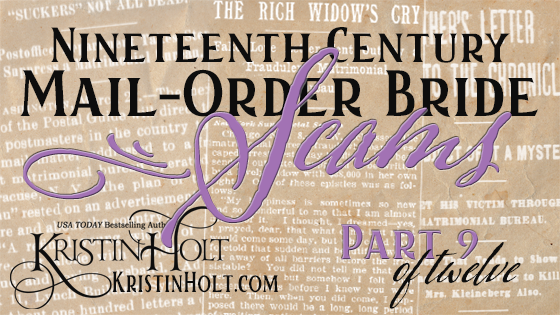
by Kristin Holt | Jun 17, 2019 | Articles
The Art of Courtship: Vintage wisdom relayed from the mid-nineteenth century to a newspaperman thirty years later (in 1887) sheds light on choosing a wife, beginning a courtship, different types of girls (shy, coquette [flirt], “vidders” [widows], and old maids, etc.). Victorian attitudes are prevalent, including the general idea that the sick and infirm aren’t suitable to marriage (think of the children!). Everything you wished your great-great grandpa had told you about courting… and more.

by Kristin Holt | Jul 2, 2016 | Articles
Auguste Carlier published MARRIAGE IN THE UNITED STATES in 1867. Section VI, titled “Marriages in the West”, This sheds light on the attitudes and perspective of Victorian Americans toward marriage, setting the west, mail-order brides, correspondence courtships, and courtship in general. The small section, provided within this article, is definitely worth a read!

by Kristin Holt | Mar 18, 2016 | Articles
Flourishing in Our Midst are “Matrimonial Agencies” Which Seem to Need Attention:
Trysting Places for fools, Old and Young Which Can Be Dispensed With.
One Institution Investigated, the Vile Character of Which its Proprietors Do Not Deny.
The original newspaper article appeared in The Inter Ocean Newspaper, Chicago, Illinois, 28 August 1887.

by Kristin Holt | Mar 15, 2016 | Articles
A parade through historical newspapers taking a look at the wild and colorful history of one Charles H. Rowan, proprietor of a matrimonial agency in Milwaukee, Wisconsin in the late 1890’s. He was accused, arrested, tried, found not-guilty, allegedly bribed government officials, retried–and the story doesn’t end there.

by Kristin Holt | Mar 9, 2016 | Articles
One common thread through all Articles in this series (Nineteenth Century Mail-Order Bride SCAMS) is the criminal’s intention to capitalize on their victims’ loneliness and desire for love and companionship.
Some brides-elect and grooms-elect actually had their intellect about them enough to recognize when things weren’t quite right (even if fraud was not involved in one out of three incidences)… and made prudent decisions about their course of action.













